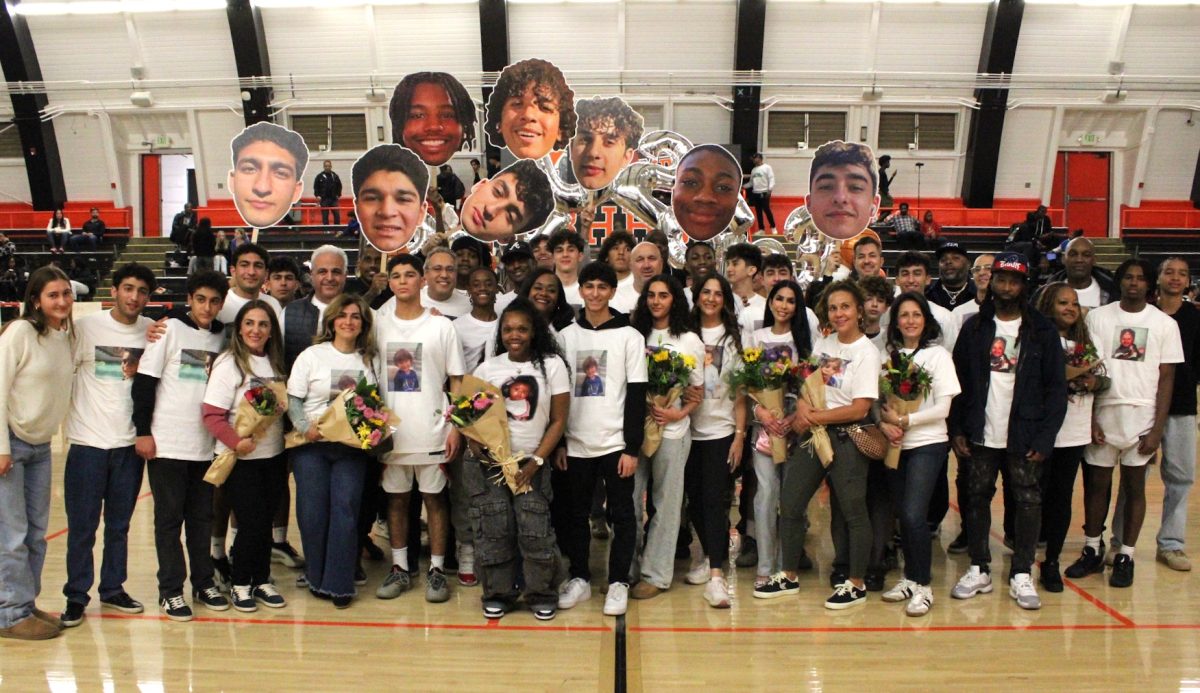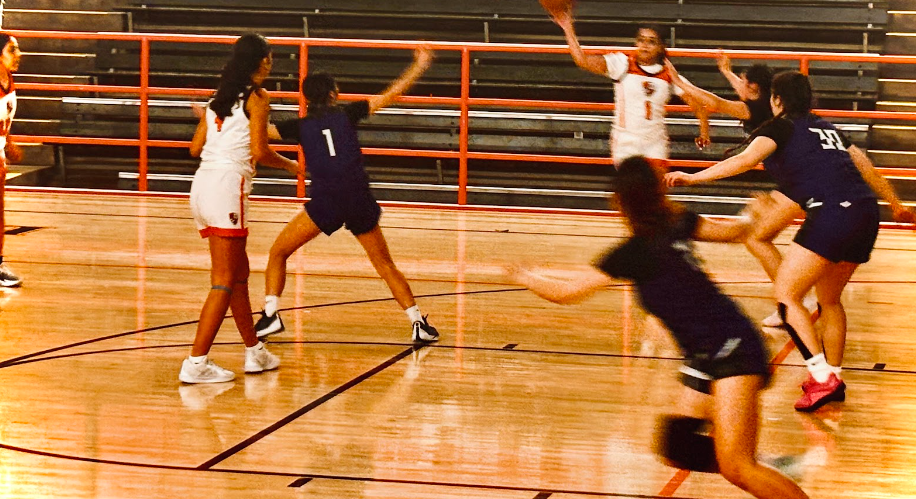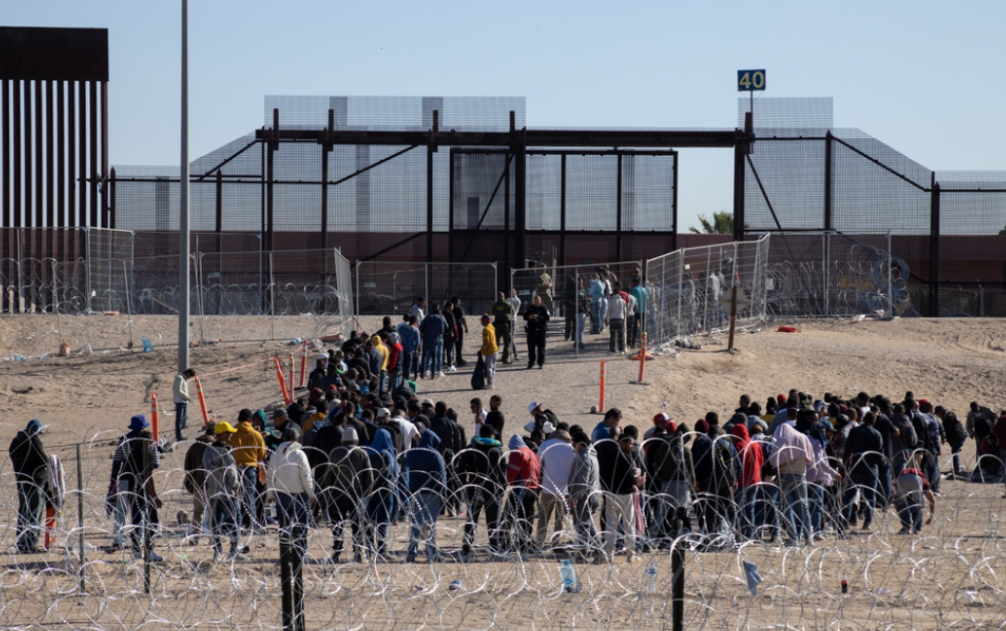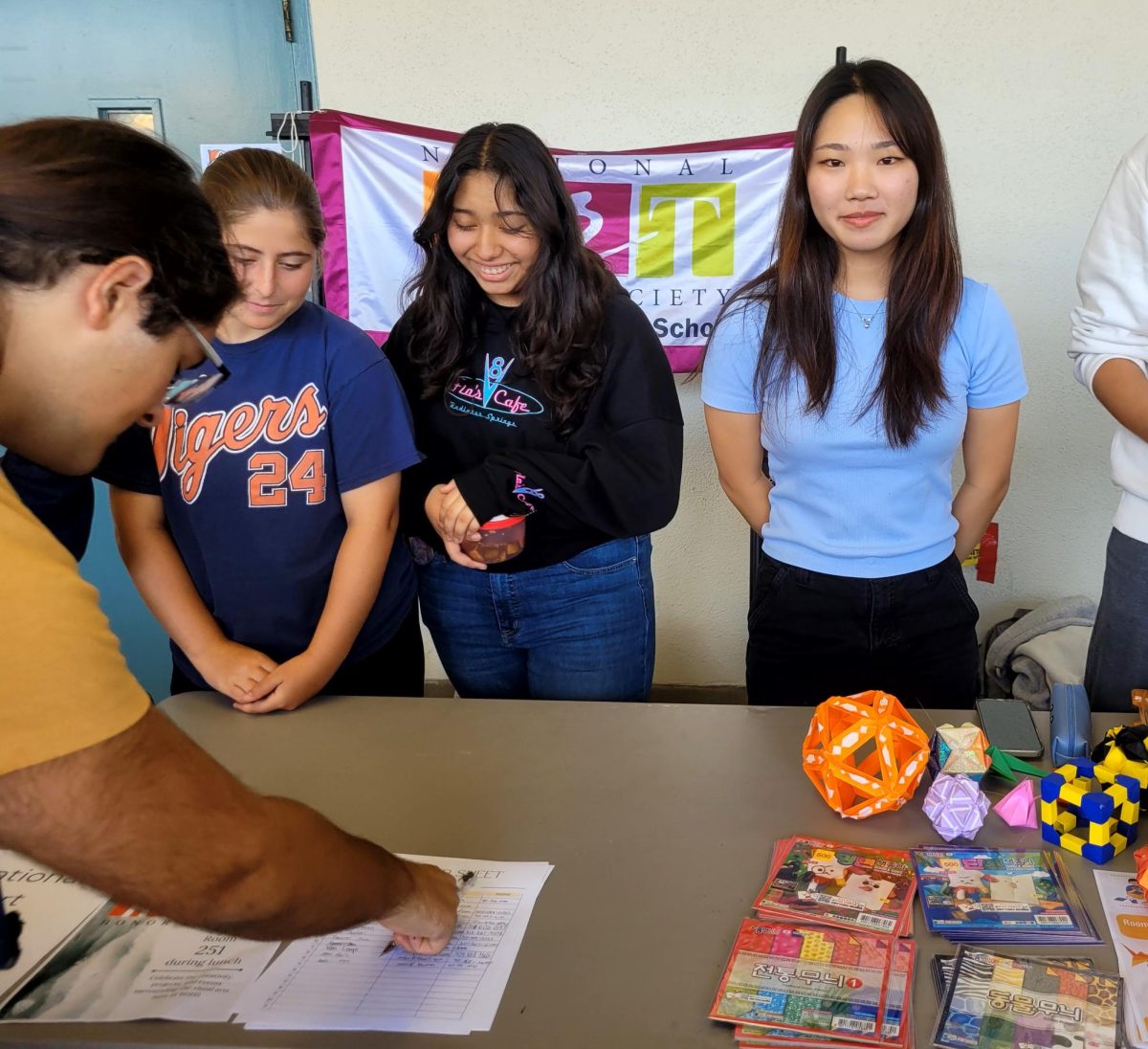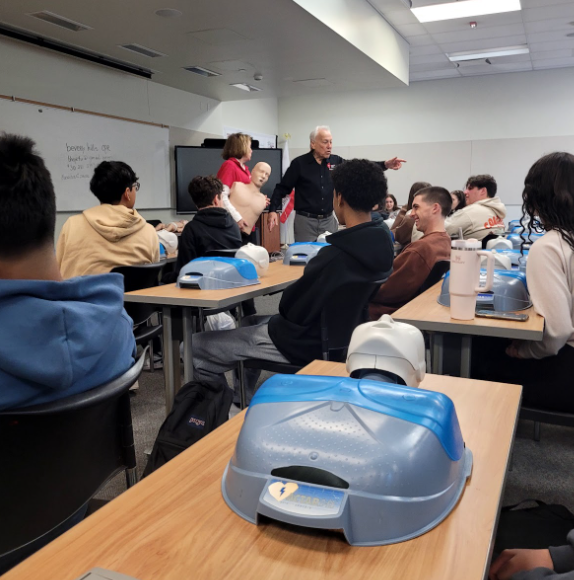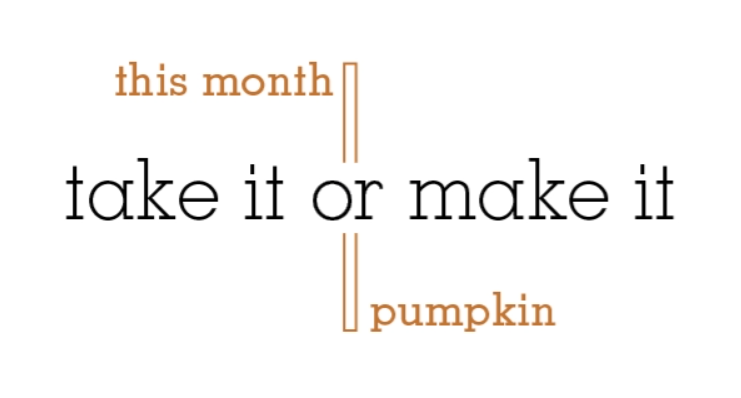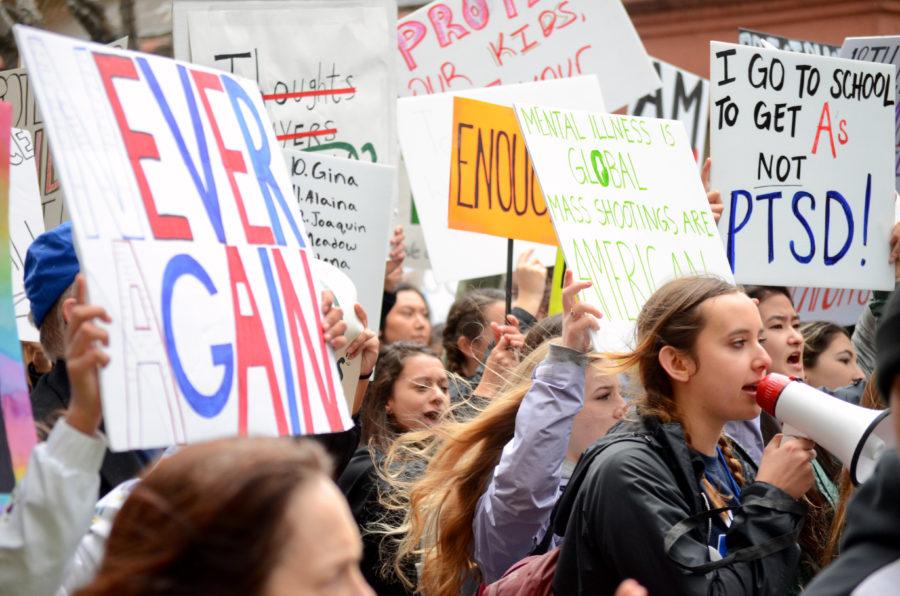Sleep deprivation prevalent in Beverly’s student population
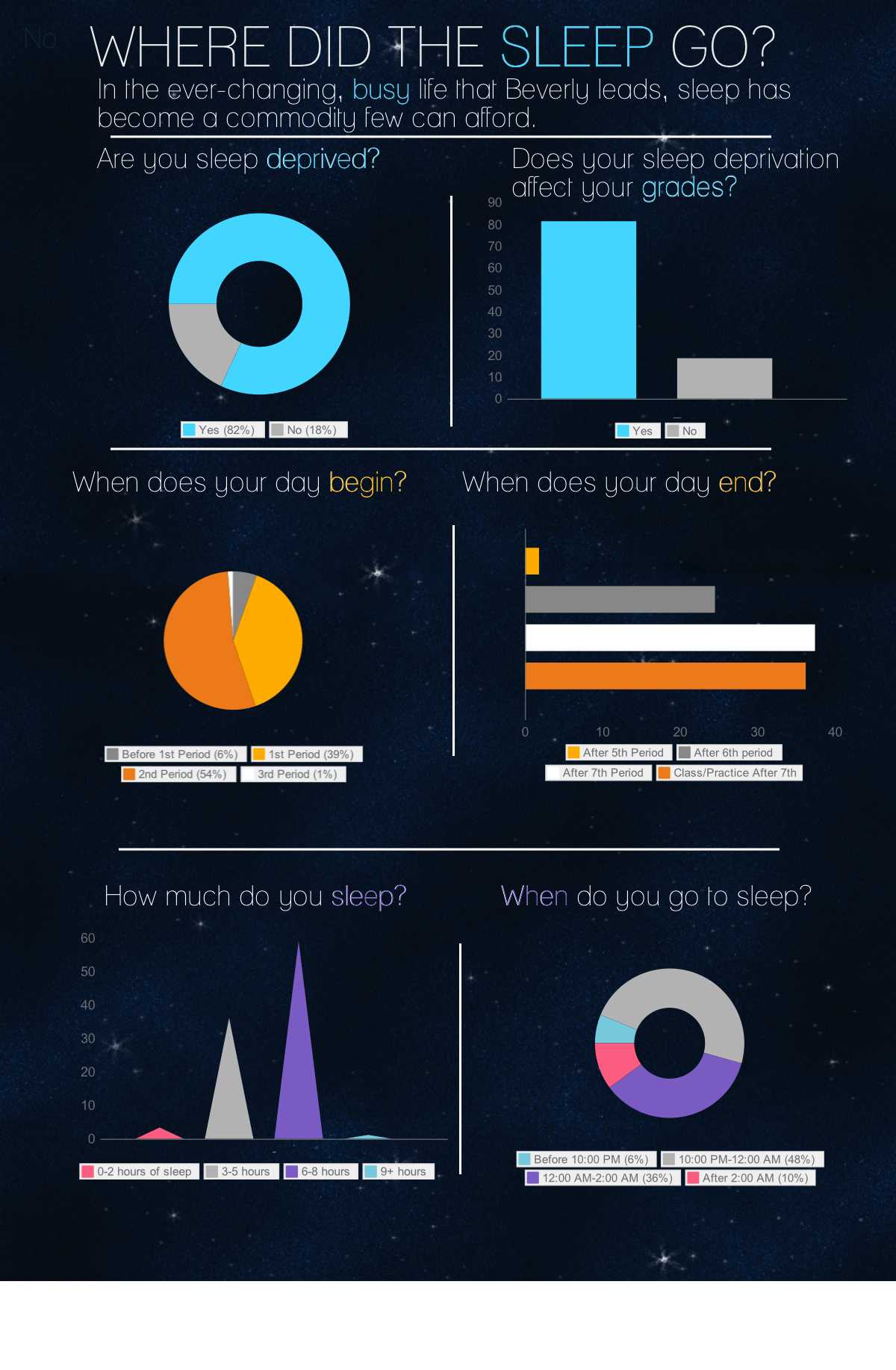
Vivian Geilim staff writer
Sydney Tran staff writer
In the midst of high school, many students struggle with burdens that trouble the typical teenager. Whether they’re stressing about
academics or scrolling through social media, students may find it difficult to receive an appropriate amount of sleep.
Research has shown that the average person sleeps approximately eight hours a day, spending an estimate of 229,961 hours sleeping throughout their lifetime. According to Brainfacts.org, that is nearly one third of the average human life. In other words, by the time you’re 75, you will have slept away 25 years of your life, tucked away in nightmares, lucid dreams and the subconscious fantasy and imagination.
However, in a recent poll distributed among the student body, out of 326 surveyed, 81.9 percent of students claimed to be sleep deprived.
“When we’re younger we don’t want to sleep, but when we’re older, we don’t need the sleep,” physiology teacher Sue Yovetich said.
With excessive homework and assignments, many students alter their sleep cycles in order to tend to their studies.
“I’m not able to get more sleep because I usually have some amount of homework for each class if it’s not just studying,” junior Blake Sloane said. “If I don’t have homework, I have to study,”
After a legitimate restless night, people of all ages are more vulnerable to aggressive and irritable behavior, prone to more stress and are more sensitive, according to the Division of Sleep Medicine at Harvard Medical School.
“People who have problems with sleep are at increased risk for developing emotional disorders, depression, and anxiety,” Harvard Medical School Associate Physician Dr . Lawrence J. Epstein said.
In a study conducted at University of Pennsylvania, researchers found that subjects who were limited to only 4.5 hours of sleep a night for one week reported feeling more stressed, angry, sad and mentally exhausted.
Sleep inevitably impacts academics and the way students study and process information and may lead to students falling asleep in class.
“We try to avoid [students sleeping in class] as much as possible, but I understand, too, that they have rigorous schedules and they’re sitting long. Sitting during the day makes you tired, so I think that’s a part of it too so maybe incorporating physical activities into the day will help students sustain their energy,” Yovetich said.
In addition to its physiological effects, lack of sleep may cause psychological issues. In an environment as stressful and taxing as school, one must receive an appropriate amount of sleep in order to function with reliable cognition.
Sleep’s effects on cognition are shown through the many students who find that late nights and early mornings alter their academic performance.
“I’m a lot more tired throughout the day and I say that I’m less effective in my studies. Because I don’t feel like I get enough sleep at night, I feel like I don’t retain as much information throughout the day,” junior Blake Sloane said.
With constant stressors at school, students have to decide whether or not they want to sacrifice a few points on a homework assignment or a club meeting in order to get more sleep.
“As a senior, it’s a busy time. You want to balance social life, academics, extracurricular activities and applications. I don’t mention sleep because it’s not something students consider and attempt to prioritize,” senior Kyle Mehrian said.“Unfortunately, we can’t go three days without sleep so it comes up, but it’s not the priority of many people to designate nine hours to sleep. It’s something that we may need to stress more in school. People are unaware of the consequences that a lack of sleep produces.”
Categories:
Sleep patterns at Beverly
October 13, 2015
0
Donate to Highlights
$75
$1000
Contributed
Our Goal
Your donation will support the student journalists of Beverly Hills High School. Your contribution will allow us to purchase equipment and cover our annual website hosting costs.
More to Discover



